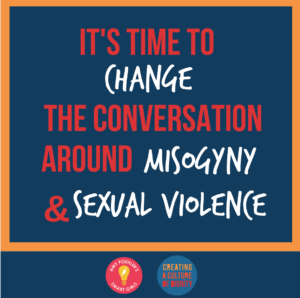Rosalind Wiseman's Blog, page 26
December 12, 2016
Dignity is non-negotiable
This article originally appeared in Times-Republican here.
By Joa Laville
This has been a very difficult and confusing week for so many in our community, with people feeling everything from sad, angry, and confused to scared, betrayed, or accused. In the midst of the pain, there is an overwhelming sense of “Where do we go from here?”
I think the beginning of the answer was recommended by speaker Rosalind Wiseman at the MHS assembly last Tuesday: we need to agree that “dignity is non-negotiable.”
This means that dignity is a basic human right. That we commit to a baseline of respecting the dignity of one another. That every person — no matter what — deserves to feel safe and OK being who they are.
Respecting dignity does not mean we agree with or even respect opinions or life choices. It does not mean we have to like someone or share their values or want to spend time with them. It does not prevent conflicts or hurt feelings or serious divisions in what we believe. It means that in spite of all that — we commit to treating each other with dignity and protecting one another’s dignity.
This is true for every human being no matter what they look like, who they love, where they come from, what their immigration status is, what religion they practice, how their bodies or minds operate, how much or little money they have, what gender they are, how old they are, who they voted for, or even how they are treating us.
Dignity means you can disagree with someone or protect your own dignity while not engaging in degrading, humiliating or intimidating language or actions. Dignity means it is not okay to ridicule or demean someone else’s feelings, even if you don’t understand them. Dignity does not rule out consequences when people do hurtful things or break rules. Even the most serious consequences can be imparted in an atmosphere of dignity.
Agreeing that “dignity is non-negotiable” is not the stuff of sunshine and rainbows and smiley faces. It takes courage. It is hard work. It is often the most uncomfortable when it is the most crucial.
Making a conscious commitment as a community to a baseline of “Dignity as a Basic Right” is only a starting point to repairing our country and working out many conflicts and problems. It may be our only chance to move forward together.
Recent Posts
Dignity is non-negotiable
8 Strategies To Be the Parent Teens Will Actually Talk To
Today Show: “Teens Tell All”
 7k
7k

 10k
10k
 Follow
Follow


December 1, 2016
8 Strategies To Be the Parent Teens Will Actually Talk To
This article originally appeared on Today Show.
How can we be sanely involved in our teens’ lives? As a mom of teens and an educator who has worked with teens for over twenty years, it’s easy to say that it’s all about communication. But good communication with a teen is an art form requiring patience, humor, maturity, and a belief that it’s worth the effort to be in a relationship with a person who can and probably will push every button you have and not apologize until they’re 25. So here are some tips to keep you sane, your teen safe and your relationship with each other strong.
You don’t have to handle every situation perfectly. You can’t. You will have countless opportunities parenting a teen to teach your values. You will handle some of these moments well and some of these moments…not so much. So give yourself (and anyone else you’re parenting with) a break.
You don’t have to stalk your child’s every move online or in real life to parent a teen well. More important than any tracking device you install on their phone (and they can leave that phone at a friend’s house and go wherever they want and borrow their friend’s phone for any communication), is having a relationship where they believe you’re a source of comfort, you recognize that they’re growing up, they know what you stand for, and you will hold them accountable if they go against your values.
1. Recognize that teens’ lives are complicated
No they don’t have to pay bills, but usually teens are dealing with a lot. Many teens are confronting situations involving drugs, alcohol, mental health issues, or violence in the family. Even if they aren’t directly involved, it could be happening to friends they care about.
2. Teens aren’t going to “get it” overnight
Remember, it takes time for any of us to develop good decision-making skills. From having a friend who is a bad influence to realizing it’s not good to procrastinate on a school assignment until the night before it’s due — teens have to go through these experiences before they’re able to turn that into better decision-making.
3. Listen, don’t lecture
Listening should mean being ready to be changed by what you hear. Of course that doesn’t mean teens automatically get whatever they want, but it does mean parents should listen and respect what is important to them. By all means, disagree with them but don’t talk down to them. Avoid coming across as if you’re judging them, their decision-making ability, or their choice in friends.
4. Keep it short
Teens often dread conversations with their parents about drugs, alcohol, sex, friends, academics, etc., because they assume they’ll be trapped listening to you for hours. You’re way better off telling your child, “I want to talk to you about X but this should only take a few minutes. Here’s what I think about it. What do you think?” Wrap up any conversation like this by asking them what they think they heard from you. So their response should be something like this, “OK, you think it’s important that I tell you the truth about where I am so we have mutual trust. Can I go now?” I know that doesn’t sound like an awesome response, but this can be the reality of parenting a teen.
5. Keep it to three
When you want to discuss the dreaded topics I listed in No. 4, keep it to three concepts. Pick three things that you want to get across, no matter what happens in the conversation. If you hear yourself repeating any of the three items, it’s time to stop talking.
6. Don’t be peer pressured
When they say, All the other parents… let their children have co-ed sleepovers, let teens go to parties without parental supervision, buy their children new cell phones no matter how times they get lost or broken, you can say: “Well, you chose the wrong parents. And just so we can confirm how insane I am, why don’t you give me the names and numbers of five parents I can talk to so they can tell me how different my rules are than theirs.”
7. Share the truth, not the gory details
If you have a history of alcohol or drug abuse in your family and it’s not already clear to your teen, appropriately share your family history. That means avoid the horror story about the time Uncle Mark got so drunk he fell over the table. However, you can say, “We have a history of alcoholism/drug abuse in our family so you may be more vulnerable to developing an addiction. As you get older, I won’t be there with you all the time and you’re going to have to make your own decisions. It’s up to you to take responsibility for yourself and I’m always here to talk these things through with you.”
8. What if you used when you were a teen?
Don’t lie or tell them it’s none of their business. Instead, prepare what you want to say by answering the following questions: What life lessons did you learn about yourself and others when you used? How did using affect your friendships?
Parents might ask: But if they can see I’m OK now and I tell them I drank or did drugs, doesn’t that send the message that drugs and drinking are OK?
Your children are smart. So you can say, “Yes, I drank when I was in high school but this is what I learned about myself (or my friends) from those experiences… For example, I learned that friends can’t be relied on when they’re drunk.” Or, “Sometimes people use alcohol as an excuse for their behavior and expect you to accept what they’re doing no matter what.”
All in all, remember, it’s not going to be easy and you’re probably not going to get a lot of thank-yous in the immediate future. But giving them that balance of respect and comfort goes such a long way in building a great relationship with teens, so they’ll come to you when they really need your guidance.
Recent Posts
8 Strategies To Be the Parent Teens Will Actually Talk To
Today Show: “Teens Tell All”
Naked Communication // Book Excerpt
 7k
7k

 10k
10k
 Follow
Follow


November 30, 2016
Today Show: “Teens Tell All”
Rosalind worked with the Today Show to gather a group of local, Colorado teens to talk about what it is like to be a teen in today’s world. From the secrets their parents don’t know, to social media, hooking up, drugs, and drinking, this group of teens helps expose the pressures of teen world.
Recent Posts
Today Show: “Teens Tell All”
Naked Communication // Book Excerpt
Hearing Our Children’s Voices After The Election
 7k
7k

 10k
10k
 Follow
Follow


November 28, 2016
Naked Communication // Book Excerpt
Have you ever wanted to handle a conflict with more ease? Have a difficult conversation with your teen without losing it? Feel really heard and understood by the people in your life?
Our relationships are messy, and yet they’re everything.
I’d wager that your personal happiness is directly related to the quality of your relationships. Yet, we’re not really taught how to cultivate amazing relationships.
Our national, and even international, political climate has put a spotlight on our communication struggles lately.There is a great need both within families and broader communities to listen to each other, to reach understanding across differences, and to strive for connection over division.
Here’s an excerpt from“Naked Communication: Courageously Create the Relationships You Really Want” to support you as you navigate the maze of interpersonal relationships:
“One of the common pitfalls of effective communication is to skirt around what you really want to say, what you really need, or how you really feel. It’s an easy way of avoiding the hard conversations that require courage and vulnerability.
Let me give you an example:
I was sitting in my office across from a distraught mom of a teenage boy. They were always fighting. She couldn’t reach him anymore. She didn’t know what was happening to him or why he was always so angry with her.
She gave me the example of their usual morning. He’s getting ready to leave for school, dressed in his “skater look,” ripped-up jeans hanging low, boxers visible to the world, beat-up sneakers, hoodie.
“Pull up your pants,” she says. He rolls his eyes. “Don’t give me attitude first thing in the morning.” Another eye roll. “Really, you look like a bum.” He turns away. Mom’s voice raises. Son retreats further into his hoodie and wants to get away from her as quickly as possible.
Now mom’s in tears in the school counseling office, wondering what happened to her sweet boy.
My question, “What are you really trying to tell him?”
Because it’s not about the jeans. The jeans alone don’t make you this sad and upset.
The answer, “I’m scared he’s getting into drugs and he’ll go down the wrong path like I did and I don’t want him to suffer that way. I’m terrified.”
Here’s the thing: We often spend a lot of time and energy fighting, talking, criticizing and nitpicking without addressing the actual issue that’s bothering us.
It’s a super common communication challenge. This lovely mom, who adored her son, was struggling to speak honestly about what she really wanted him to know.
That she loved him. That she had made mistakes when she was his age that had caused her a lot of suffering. That she wanted him to be safe. That he could trust her and talk to her about his life.
Instead, she constantly picked fights with him over seemingly unimportant things, such as his clothes.
As you can imagine, this created the opposite outcome to what she desired. Instead of an open and connected relationship with her son, he wanted nothing to do with her and thought she was a total pain in the ass. Lose-lose situation.
So, I ask you… What are you really trying to communicate with the people in your life?
Look at what is getting in your way of the honest communication just below the surface that wants to be expressed.
You’re pissed at your partner for coming home 30 minutes late again, so you pick a fight about dinner.
In fact, you want to say, “I really want you home when you say you’ll be home because I need to know I can trust you to do what you say you will.”
You want to work on a really cool new project at work, but so far you haven’t been added to the project’s team. So, you keep gossiping with colleagues about the project’s design flaws, or that the development schedule isn’t right.
Instead, you want to say to your boss, “I have some ideas that I think could be really relevant to this project. Could we meet to discuss them?”
Usually there’s underlying communication we haven’t expressed when we’re fighting about the same things again and again. Or when we’re gossiping with the people who have no power to effect the change we desire.
I know sometimes we don’t even realize we’re doing it. And, I know it’s scary to be honest and clear.
I also know that effective communication fuels more connected relationships. And more connected relationships make us happier and more fulfilled. And being happier and more fulfilled is where it’s at, right? We all want to feel good.
Next time you find yourself nitpicking at your kid, your husband, your co-worker… ask yourself, “Is there something else I’m really trying to say here?”
And then, with compassion and courage, say what you mean.
I promise you, as you improve your naked communication skills, your relationships will grow and evolve. And your happiness will too.
Yes, shit will hit the fan at times. Challenges will show up. You’ll find yourself hooked in your old patterns of communicating. You’ll walk away from an interaction and kick yourself because you know you didn’t handle it nakedly.
That’s fine. That’s normal! Go back to what I share in this book and keep practicing. No one nails their communication every time. No one. But, you become masterful at naked communication so that you can truly cause the connections you desire with all the different types of people in your life.”
Get Naked Communication
Recent Posts
Recent Posts
Naked Communication // Book Excerpt
Hearing Our Children’s Voices After The Election
NETIZENS Documentary // Supporting Important Work
 7k
7k

 10k
10k
 Follow
Follow


November 23, 2016
Hearing Our Children’s Voices After The Election
This originally appeared in our Newsletter, which you can sign up for here.
On November 9th we worked in Barrington, IL.
On November 14th & 15th we worked in Marshalltown Iowa.
On November 16th we worked in Salt Lake City.
On November 17th we worked in New Orleans.
All of these programs were scheduled in advance of the election. But after November 8th, as we traveled the country working with young people, parents, grandparents, and educators, we had a unique opportunity to listen. This is what we heard:
I’ll miss you when you get shipped to Mexico.
Why would children listen to you now? Bullying just won the White House.
I have a 3rd grade African American student in my school and she is truly in fear for her life.
He bullied and won the presidency so I can do it too.
At first, the sheer amount of fear and sadness was overwhelming. But as we traveled and spoke with educators and community leaders, the need was so great that we couldn’t let our feelings stop us from doing our work.
This is what we believe is most important to hold in our heads and hearts:
It’s not about who won the election. Everyone who voted (and many who decided not to vote) had a reason for their decision and that needs to be respected. It is about the reality that young people feel unsafe. It is about many young people feeling that there are students they go to school with and that adults in positions of power who want to hurt them and their families. Contrary to what some are saying, these stories aren’t made up or blown out of proportion. And truly the question is, How many children have to live in fear for adults to believe that their experiences matter? Isn’t one enough?
Assuring children’s feeling of safety and inclusion is not political. No matter how you vote, it is our basic obligation to them. It is also our obligation to teach young people that disagreement is not disrespect; creating and protecting the environment for civil disagreement to occur is the foundation for our democracy. Our history is not just words in a book and dates to be memorized. Our history is about a country struggling to uphold the belief that all people have inalienable rights and that this core value builds and strengthens our communities. It is our duty to respect our government while challenging the people who have power within it when they pit people against each other, demean and dismiss others’ experiences, and refuse to acknowledge the impact of their actions.
On the 16th, at the Utah Anti-Bullying Coalition summit we spoke to over 10,000 high school students and this is what we told them:
Sometimes it’s hard to know when to intervene because things get dismissed as a joke. Here’s when it’s not confusing. If you hear, “I”ll miss you when you get shipped to Mexico.” That’s never a joke.
Leadership requires that you speak out but so does basic human decency.
And if people say, “He bullied and won the presidency so I can do it too.” No you can’t. This is our community, our home, it wasn’t ok before this election and it’s not ok now. You don’t get a pass because someone in a position of leadership bullied others.
And these were our parting words:
People often say young people are our future. We say you are the present. This is your moment to claim ownership of your friendships, schools and communities. This is your moment to remind adults that our democracy rests on our ability to disagree without attacking each other. Yes, people will try to silence you. But it’s not all on your shoulders. We will stand next to you as we repair our communities and uphold the dignity of all.
NETIZENS Documentary // Supporting Important Work
Now more than ever, we need the voices and leadership of women. The web is perhaps the most important public space in our communities, and one in which we all have a stake. Yet online harassment is silencing women and preventing them from taking part in all that the internet offers.
NETIZENS Film, a new feature documentary exploring online harassment of women produced by Cynthia Lowen from The BULLY Project, follows targets of online harassment as they confront digital abuse and strive for equality and justice online.
This is SUCH important work – learn more about the campaign and join the movement for a just and accessible internet for all!
Kickstarter campaign.Kickstarter Campaign
November 21, 2016
“Just Joking” Helping Students Understand When Teasing Hurts
Originally posted on Association for Middle Level Education’s blog.
No matter what you teach, if you are a middle school teacher you want to set up some norms and guidelines for your classroom. Even better, you want to be on the same page with the other teachers. But this is middle school and things can get a squirrely, especially about how students “joke” around with each other. It’s a hallmark of middle school that “just joking” is used to really hurt and humiliate another student. And the targeted student doesn’t want to admit how upset he or she is for fear of being teased even more. The social norm that is set in those moments makes it much harder, if not impossible, to create a safe learning environment. Students don’t want to do anything that may invite the ridicule of others.
But if we define the different types of teasing and then debrief with our students about how teasing impacts them, we can effectively create a positive and supportive social norm. What follows is an excerpt from the new Owning Up: Empowering Adolescents to Confront Social Cruelty, Bullying, and Injustice that explains the different types of teasing and a then gives a debrief activity you can do with your students.
Activity: Think About It: Is This Funny?
Time: 10 minutes
Purpose: To break down misconceptions about why people laugh
The common assumption is that people laugh when they think something is funny. But are there other reasons why people laugh?
Examples:
They’re nervous.
They’re uncomfortable.
They don’t know what to say.
In addition, people have different ideas of what they think is funny. No one has the right to make someone feel stupid, sensitive, or weird if they don’t think something is funny that you do. Let’s make a list of general ideas of what is funny and what is not.
Funny
Not Funny
Tickling
Tickling
Fart jokes
Fart jokes
Talking about other people
Talking about other people
Cat videos
Cat videos
Girls/periods (not ever funny)
Things people can’t control, like acne (not ever funny)
Debrief
Everyone has their own definition of what’s funny, and all are valid, as long as they don’t hurt someone else.
Takeaways
The problem is, it can be awkward to tell people when you don’t think something is funny because it could make things uncomfortable between you, or you could come across as taking things too seriously.
Activity: Think About It: Breaking Down Different Types of Teasing
Time: 15 minute
Purpose: To define different types of teasing for students
Humor, teasing each other, and joking around can be a sign that people are close friends. Humor can be a powerful tool to defend yourself against people who want to make fun of you. But teasing and humor can also be used to make someone feel bad, especially when people know specific things someone is sensitive about. Teasing can be really confusing for people. Sometimes you can’t tell if people are really joking/teasing or if they are just pretending to be joking/teasing but really want to hurt your feelings. Even more confusing is when people say they’re “just kidding,” so they can be hurtful but get out of taking responsibility for their behavior and blame the person they’re teasing for being too sensitive.
Let’s break down the different kinds of teasing so it’s easier to figure out what’s going on.
Good teasing—people enjoy the teasing . . .
You feel liked by the teaser—both people enjoy the teasing
You don’t feel the teaser’s motivation is to put you down
If you decide you don’t like it, you can say something and it will stop
Democracy of teasing—everyone in the group is able to tease and be teased
Let’s brainstorm examples of good teasing . . .
Annoying teasing—the teaser finds it more enjoyable than the person getting teased
You don’t like it, and you feel the teaser should know you don’t like it but somehow they don’t
It makes you feel too sensitive or uptight (you can’t take a joke) It makes you feel frustrated
You are teased about the same thing over and over
You can say you don’t like it, but the teaser laughs or ignores you
Let’s brainstorm examples of annoying teasing . . .
Malicious (bad) teasing—the teaser intentionally attempts to hurt the other person
You feel like the teasing is being done to put you down
You are being teased about something other people know makes you uncomfortable
If you defend yourself, you are blamed for not being able to take a joke; the teasing gets much worse and the teaser brings other people into it
The teasing is relentless (it doesn’t stop)
It’s in front of other people
Let’s brainstorm examples of malicious teasing . . .
________________________________________
Debrief
Usually there are three types of teasing: good teasing, annoying teasing, and malicious (bad) teasing.
Takeaways
People have their own concepts of what good teasing is. Some people are more sensitive than others, and it’s really important to respect people’s feelings. And everyone has the right to say when they think someone has gone over the line when teasing them or someone else.
Wrap It Up
Time: 10 minutes
Everyone has the right to have their feelings and opinions respected.
But it can be really hard to say what they feel.
Don’t take advantage of other people feeling so embarrassed that they don’t say what they feel.
Why Do You Have to Be So Mean? // Guest Blog
This originally appeared on Brigitte Peck’s blog, I am not Super Woman! here.
At first I could convince myself it was normal. Transitioning to middle school is hard. He’s tired. He is giving in to a tendency to exaggerate. Clearly, “everyone” in French class didn’t tell him he is stupid. I’d tell him to go shoot some baskets, eat a snack, and not let people get under his skin.
Then, I convinced myself it was envy. Every day came some anecdote that referenced the “all-stars.” These popular boys had no names but did have girlfriends, were the self-appointed captains for basketball, and didn’t bother following him back on Instagram. He wants to be the best at something. I get that, but I also get genetics and superstar athlete is just not in the cards for him. I reminded him that he has good friends, trying to confer the not-worth-your-energy status on those other boys. I add, “you don’t get to list that you were an 11-year old all-star on your college application,” for good measure.
Next, we moved into the “it’s not you; it’s him” category. This time, there was a name and it was a friend. He would push my son’s books out of his arms, flip his hat off his head, and make off-hand comments he knew would cut. This boy pushed all the right buttons and then quickly followed it up with, “chill out. I’m just kidding.”
“I don’t know how to defend myself,” my son confided in me. “I’m not the kind of kid to fight back and I’m worried I’ll get too emotional if I try telling him to leave me alone, so I just take it.” There it was. He is a nice, sensitive kid and that makes him easy prey. I push the panicky feeling away by reminding myself that it’s just this one kid. It has more to do with how he feels about himself than it does with my son. I know my child can be hard on people. I do not doubt that he could have done something to make his friend feel defensive. I assume there is more to this story than I know. Every child deserves the benefit of the doubt and I was giving it. This too would pass.
I made myself feel better by reaching out to some friends for help. “What should I do?” I asked moms with older boys. Their answers didn’t surprise me. He was going to have to learn to hold his own. He needed to push back. He had to do what he already said he couldn’t – defend himself.
He worked on it. He practiced what he would say or do. He would head out feeling confident. He would come home offering excuses, most of which had to do with not wanting to get in trouble. We told him to get in trouble and we would take care of it. He claimed it was better. I wanted to believe him. I let the tightness in my chest loosen.
Then came the text messages to his dad from the class field trip. They started vague. “I’m just tired of people,” he said. With each reply, my husband asked a new question: “Who?” “What?” “What next?” Unlike before, this time his answers were specific: six or seven boys’ names I didn’t recognize; provoking behavior (flat tires; tapping his shoulder); unkind words (fat, pumpkin, gay); and taunts designed to dare him to respond (“better leave him alone or he’ll freak out.”). You know how this ends. He had enough and lashed out. Now he’s the kid with “anger issues.”
After weeks of telling my son that he would have to respond, he finally does. Then these boys turn his response into one more way to come at him. I cannot explain this away. I have to admit that I have a kind, sweet son who people are mean to. It’s not that they aren’t his friends. It’s that they make it clear that they are not his friends. This is the part that I don’t understand. This is the part that makes me want to lash out and beg parents to tell their children how important it is to be kind.
So, here we are. I’m about to buy a punching bag and download a bunch of books about middle school boys. My son is having a better day. He will have lots of memories from this trip that don’t include others having fun at his expense. He will survive. I will too, but today I am not there.
Today, I am angry. Today, I am hurt. Today, I just wish those kids would leave him alone. Today, I just wish that I could tell those boys that mean people suck and I wish I could tell their parents that when someone is mean to your child, it is worse than you ever imagined. Today, I just wish I could give that kind, sweet boy of mine a hug and tell him that everything is going to be OK.
Let’s do better people. Let’s do better.
After writing the original blog post, Brigitte wanted to add the following:
I decided to share because I think it’s important to remember that no matter how hard we try, how many parenting books we read (not very many in my case), and how much we encourage our children to be their own person, we cannot keep the hard times and pain away. H is a great kid who has wonderful friends. He will navigate this successfully, I have no doubt. What I didn’t include in my post was that when I reminded H that what matters is being nice, not being an all-star, he responded by telling me that nice is not what gets noticed. There is a lesson there for all of us.
Thanks for all the love. My heart is full of gratitude.
October 24, 2016
It’s Time to Change the Conversation Around Misogyny and Sexual Violence.
Amy Poehler’s Smart Girls created an awesome video about the importance of changing the conversation around misogyny and sexual violence as seen in Donald Trumps comments this election season. Check it out here and share!
Watch the full video!
Brightly Article // What Should You Say When Your Child Tells You They’ve Been a Bystander to Bullying?
“All of us have been a bystander to bullying at some point in our lives.
These situations are so hard, no matter how old we are. Yet we often don’t admit how difficult it truly is to act — as if it’s easy to speak out against bullying, and do so effectively. But it’s a very complicated process: Our brains make a series of complex decisions that we usually don’t have time to articulate, even to ourselves and, before we know it, we’ve reacted to the situation. We’ve pretended to ignore what happened, laughed it off, or backed up the person being mean. Or we’ve stayed neutral and “stayed out of it” — which certainly doesn’t look neutral to the target.”
Read the full article here!






